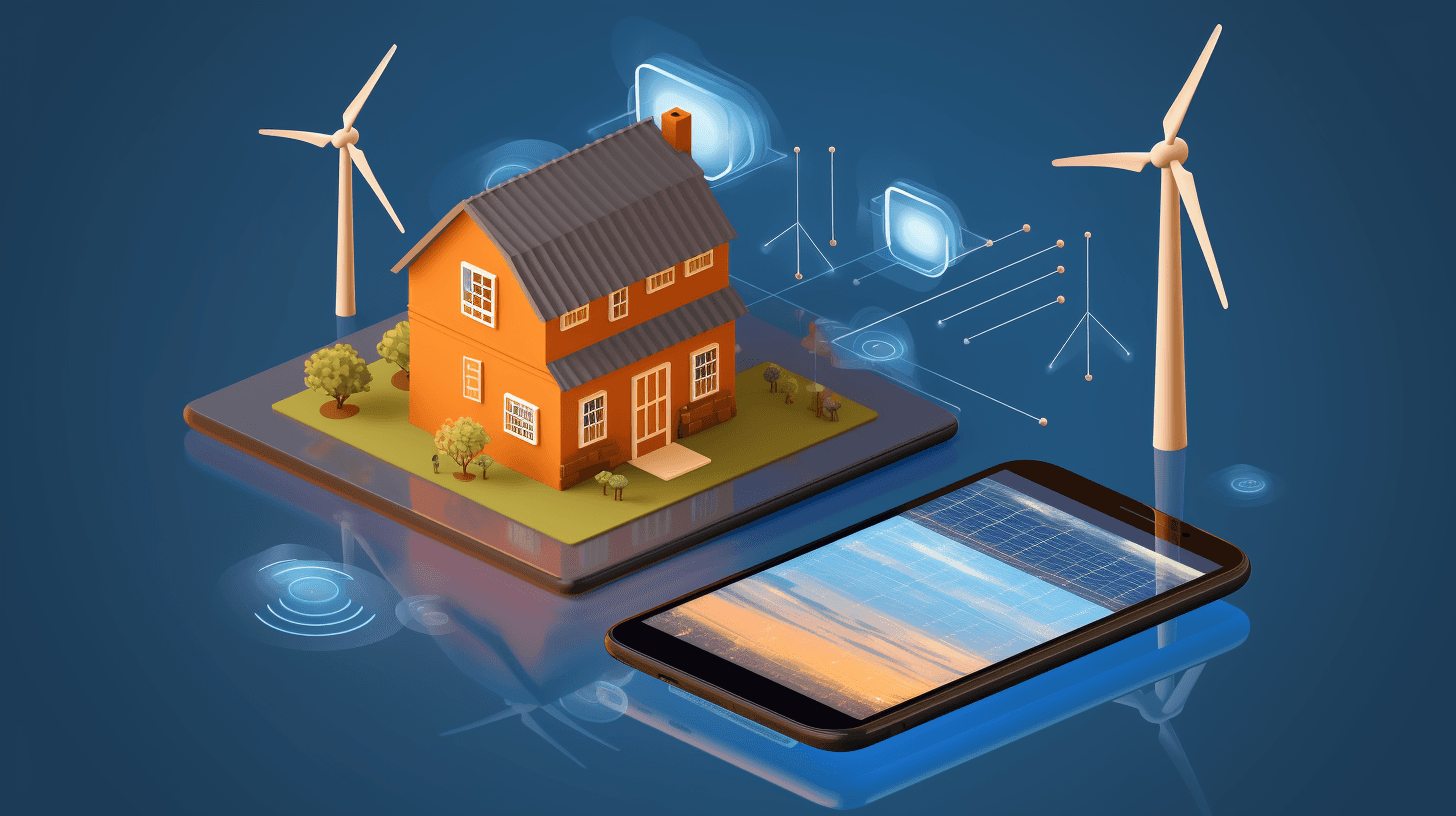Sustainable Construction: How Mobile Apps Driving Green Innovations.
In this blog we take a look at how mobile apps could become an integral part of the pre construction, construction and in use phases of building.
Date
8/31/2023
Sector
Insights
Third Sector
Utilities
Subject
Sustainability
Article Length
3 minutes

Sustainable Construction: How Mobile Apps Driving Green Innovations.
Share Via:
The integration of mobile apps into the construction sector has introduced a new dimension of sustainability. These applications offer real-time access to critical data, streamlined communication, and data analysis capabilities, all of which contribute significantly to fostering greener construction practices. This article delves into the pivotal role that mobile apps and similar technologies play in advancing sustainable construction methodologies.
Mobile Apps for Energy-Efficient Design
In the realm of sustainable construction, mobile apps have emerged as invaluable tools for architects and engineers, offering them portable access to energy-efficient design solutions. These sophisticated applications empower professionals to seamlessly integrate environmental considerations into their design processes, ensuring that projects align with the highest standards of sustainability. Let's explore how these apps revolutionise energy-efficient design and foster prompt decision-making on-site.
As construction professionals venture onto project sites, they carry with them a wealth of information encapsulated within their mobile devices. These apps act as personalised assistants, capable of processing complex project-specific parameters in real time. By inputting essential data such as geographical location, building dimensions, and local climatic conditions, architects and engineers can harness the power of these applications to swiftly generate insights that drive energy-efficient design.
The true strength of these mobile apps lies in their ability to provide instant feedback on optimal design orientations, suitable materials, and innovative energy-conserving strategies. Once the parameters are entered, the apps utilise advanced algorithms and simulation models to calculate the most effective design solutions. Professionals can receive immediate recommendations for adjusting building layouts to maximise natural light exposure, harness passive heating or cooling, and minimise energy consumption.
Materials Sourcing and Comparison Apps

Equipped with extensive databases of environmentally responsible materials, mobile apps empower construction professionals with sustainable sourcing information. These apps offer real-time access to attributes and sourcing details of various materials, enabling on-the-spot comparisons and informed decisions that minimise ecological impact.
Carbon footprint tracking on the go
In the pursuit of sustainable construction practices, the integration of mobile apps with carbon footprint calculators has proven to be a pivotal advancement. This dynamic combination empowers stakeholders, from contractors to project managers and sustainability officers, to take charge of monitoring emissions directly from construction sites. This real-time visibility into the project's environmental impact introduces a new level of accountability and responsiveness, enabling timely adjustments to ensure stringent adherence to sustainability targets.
Traditionally, tracking a construction project's carbon footprint involved labour-intensive data collection and subsequent analysis. This approach often resulted in delays, making it challenging to proactively address emissions-related issues during the project's execution. The advent of mobile apps equipped with carbon footprint calculators has effectively shattered these limitations by offering a fluid and dynamic tracking process that keeps pace with the construction site's activities.

These mobile apps act as intuitive tools for stakeholders to input and monitor data as the project progresses. Key parameters such as energy consumption, material usage, transportation, and on-site machinery emissions can be entered seamlessly. This data is then processed and integrated with algorithms to provide real-time updates on the project's carbon footprint.
Remote Monitoring of Renewable Energy Systems
Mobile apps extend the reach of renewable energy integration by enabling remote monitoring of solar panels, wind turbines, and other sustainable energy sources. Project managers and energy specialists can track energy production, system health, and efficiency from any location, ensuring optimal performance of these systems.

Streamlined Life Cycle Assessment
Mobile apps simplify the process of conducting life cycle assessments. Users can assess the environmental impact of materials during procurement, track energy consumption during operation, and gain a comprehensive view of a project's sustainability journey, all through the convenience of their mobile devices. The integration of mobile apps into the life cycle assessment process represents a significant stride towards greater sustainability within the construction industry. By simplifying the evaluation of material choices, enabling real-time tracking of energy consumption, and providing a holistic view of a project's sustainability journey, these apps catalyse more informed decision-making. As construction professionals continue to prioritise eco-conscious practices, these mobile apps will remain instrumental in navigating the intricate landscape of sustainability, resulting in projects that are both environmentally responsible and economically viable.
Enhanced Engagement for Green Building Certifications
Mobile apps elevate the process of obtaining green building certifications by providing a platform for immersive engagement. Users can interact with a building's sustainable features, gain insights into their contribution to certification criteria, and foster a deeper understanding of sustainable construction principles.
The top and bottom of it
The integration of mobile apps and similar technologies has effectively bridged the gap between sustainable construction principles and their practical implementation. By providing access to crucial data, analysis tools, and seamless communication, these apps empower construction professionals to make informed decisions that resonate with environmental goals. As the construction industry continues to embrace digitization, mobile apps will undoubtedly assume an increasingly pivotal role in steering sustainable practices, reducing waste, and cultivating an environmentally conscious construction landscape.